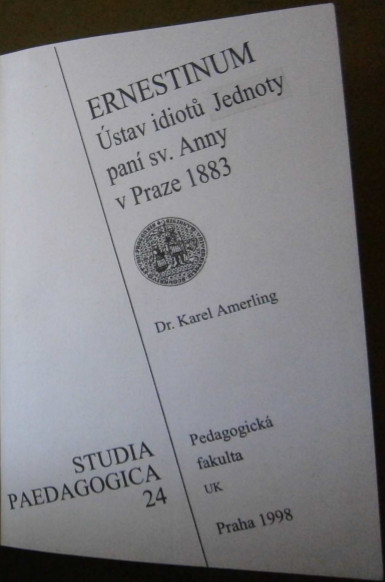Nick Land: Fanged Noumena: Collected Writings 1987-2007 (2011)
Filed under book | Tags: · biology, capitalism, cryptography, geophysics, nihilism, occultism, philosophy

“Fanged Noumena brings together the writings of Nick Land for the first time. During the 1990s Land’s unique philosophical work, variously described as ‘rabid nihilism’, ‘mad black deleuzianism’ and ‘cybergothic’, developed perhaps the only rigorous and culturally-engaged escape route out of the malaise of ‘continental philosophy’ – a route which was implacably blocked by the academy. However, Land’s work has continued to exert an influence, both through the British ‘speculative realist’ philosophers who studied with him, and through the many cultural producers – artists, musicians, filmmakers, bloggers – who have been invigorated by his uncompromising and abrasive philosophical vision.
Beginning with Land’s early radical rereadings of Heidegger, Nietzsche, Kant and Bataille, the volume then collects together the papers, talks and articles of the mid-90s – long the subject of rumour and vague legend (including some work which has never previously appeared in print) – in which Land developed his futuristic theory-fiction of cybercapitalism gone amok; and ends with his enigmatic later writings in which Ballardian fictions, poetics, cryptography, anthropology, grammatology and the occult are smeared into unrecognisable hybrids.
Fanged Noumena allows a dizzying perspective on the entire trajectory of this provocative and influential thinker’s work, and will introduce his unique voice to a new generation of readers.”
Edited by Robin Mackay, Ray Brassier
Publisher Urbanomic, Falmouth/UK; with Sequence Press, New York, 2011
Second edition, 2012
ISBN 095530878X, 9780955308789
667 pages
Review: Mark Fisher.
PDF (removed on 2013-3-13 upon request of the publisher)
Comment (0)Karl Amerling: Die Idiotenanstalt des Sct. Anna-Frauen-Vereins in Prag vom Jahre 1871-1883 (1883/1998) [German/Czech]
Filed under book | Tags: · 1870s, 1880s, biology, pedagogy, psychiatry

“Ernestinum, jinak Ústav idiotů Jednoty paní sv. Anny v Praze, byl ústav pro choromyslné, který založil Karel Slavoj Amerling 17. června 1871 v Praze. Sídlil nejprve v Kateřinské ulici na Novém Městě Pražském, už 1. listopadu téhož roku se ale přestěhoval do svého nového útočiště, Šternberského paláce na pražských Hradčanech (dnes jedna z poboček Národní galerie).
Amerling o chodu ústavu napsal (německy, protože nevěřil v odpovídající ohlas v češtině) práci Die Idiotenanstalt des Sct. Anna-Frauen-Vereines in Prag nach ihrem zwölfjährigen Bestande vom J. 1871-1883, do češtiny byla přeložena až roku 1997 Janou Kepartovou. Jde o neobyčejně náročný text, neboť Amerling používá mnoho vlastních neologismů, do nichž promítá své rozsáhlé vzdělání – např. jeho vlastní metody diasofie (průvěda, něm. Orientierungslehre) a mathese; dále pojmy jako dioikete, edentát, archonom, exilast, chrémat (výrobní pud), makropelmus (jedinec s nezvykle širokýma nohama a podobnýma rukama), psychozot, proterot (‘upovídaný, zbrklý blázen’), hyperkinet (‘němý, neklidný běžec’) aj.
Podle Amerlinga se lidský život dělí do dvanácti fází po sedmi letech, přičemž ‘všechny roky po ukončení 84. roku života jsou mimořádné a taktéž všechny roky před 84. rokem života, neboť životní řád obnáší přesně dvanáctkrát sedm let.’
Během existence ústavu se v něm vystřídalo asi 166 chovanců (mužů i žen), ročně od šesti (v Kateřinské ulici) do šedesáti roku 1883.” (from Wikipedia)
German edition
Self-published, Prague, 1883
152 pages
via Eťa Kazmuková
Czech edition: Ernestinum: Ústav idiotů Jednoty paní sv. Anny v Praze: stav po 12 letech trvání (1871–1883)
Translated by Jana Kepartová
Publisher Pedagogická fakulta Univerzity Karlovy, Praha, 1998
Studia Paedagogica 24
ISBN 8086039447
132 pages
wikipedia (CZ)
PDF (German, no OCR)
PDF (Czech, no OCR)
Roberto Esposito: The Third Person: Politics of Life and Philosophy of the Impersonal (2007/2012)
Filed under book | Tags: · animal, anthropology, biology, biopolitics, life, nazism, personhood, philosophy, politics, subjectivity

All discourses aimed at asserting the value of human life as such–whether philosophical, ethical, or political–assume the notion of personhood as their indispensable point of departure. This is all the more true today. In bioethics, for example, Catholic and secular thinkers may disagree on what constitutes a person and its genesis, but they certainly agree on its decisive importance: human life is considered to be untouchable only when based on personhood. In the legal sphere as well the enjoyment of subjective rights continues to be increasingly linked to the qualification of personhood, which appears to be the only one capable of bridging the gap between human being and citizen, right and life, and soul and body opened up at the very origins of Western civilization.
The radical and alarming thesis put forward in this book is that the notion of person is unable to bridge this gap because it is precisely what creates this breach. Its primary effect is to create a separation in both the human race and the individual between a rational, voluntary part endowed with particular value and another, purely biological part that is thrust by the first into the inferior dimension of the animal or the thing. In opposition to the performative power of the person, whose dual origins can be traced back to ancient Rome and Christianity, Esposito pursues his strikingly original and innovative philosophical inquiry by inviting reflection on the category of the impersonal: the third person, in removing itself from the exclusionary mechanism of the person, points toward the orginary unity of the living being.
First published in Italian as Terza Persona, Giulio Einaudi, 2007
Translated by Zakiya Hanafi
Publisher Polity, 2012
ISBN 0745643981, 9780745643984
200 pages

